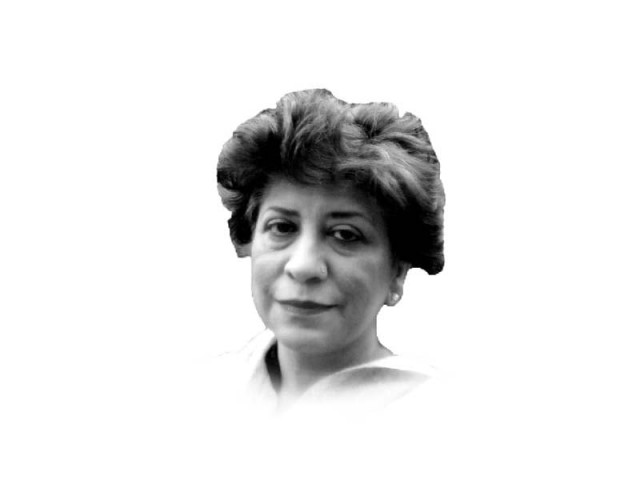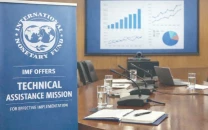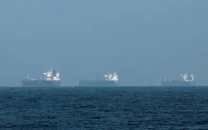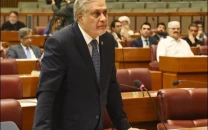What hypocrisy!
If the element of trust withers away, smaller states look for other possibilities to survive

Twenty-two heads of foreign missions in Islamabad broke diplomatic norms by issuing a joint statement on social media, calling on Pakistan to give up its neutral stance and support Ukraine at the UNGA emergency session held earlier this month. These western signatories, according to a “liberal” Pakistani newspaper, include “some of our oldest, closest and most important economic partners”.
The envoys quoted UN Secretary General Antonio Guterres as saying: “The UN Charter has been challenged in the past, but it has stood firm on the side of peace, security, development, justice, international law and human rights.” Many on this side of the US-NATO guns would disagree.
Surely the heads of the Western diplomatic missions in New Delhi are soon going to openly ask Modi to stand by Ukraine and condemn Russia. Dream on, dear readers!
It is Pakistan, with its strategic location, that has to be pressurised to remain subservient to the American defence strategy that perceives China and Russia as threatening US global influence.
It is wrong if Russia opts for the military solution but it’s okay for Europe and the US to continue sending arms shipments to Ukraine to keep the pot boiling while giving hollow assurances.
Speaking of assurances, declassified US, Soviet, German, British and French documents show that US Secretary of State James Baker’s famous ‘not one inch eastward’ assurance about NATO expansion to Mikhail Gorbachev was part of a cascade of assurances given by Western leaders to Soviet officials throughout the process of German unification in 1990 and1991. “Gorbachev agreed to German unification in NATO” as the result of these assurances. The documents also contain “subsequent Soviet and Russian complaints about being misled about NATO expansion” that eventually reached Russia’s borders.
The US and its allies meddled in Ukrainian political upheaval in 2014 in an attempt to orchestrate political outcomes. Here is what an American analyst at CATO institute wrote in 2017: “The extent of the Obama administration’s meddling in Ukraine’s politics was breath-taking… Russian intelligence intercepted and leaked to the international media a telephonic call in which (Assistant Secretary of State Victoria) Nuland, and U.S. ambassador to Ukraine Geoffrey Pyatt discussed in detail their preferences for specific personnel in a post‐Yanukovych government… at a time when Yanukovych was still Ukraine’s lawful president… (They were) scheming about removing an elected government and replacing it with officials meriting U.S. approval… Washington and its European Union allies” did not show any “respect for democratic institutions and procedures”.
American academic John Mearsheimer is spot on when he says that the US and its European allies are mostly responsible for both the 2014 crisis and the current conflict. For peace to prevail the US will have to reconsider Ukraine’s NATO status. For peace to prevail the US will have to learn to coexist with other powerful states and accept their equal right to grow and prosper and perceive them as competitors and not evil threats.
It is kosher for the US and allies to attack Libya, kill Qaddafi and leave the country in a shambles; or attack Iraq to destroy non-existent WMDs, take out Saddam Hussein and turn a stable country into a hellhole; or join hands to punish Afghanistan for 9/11 attacks for which no Afghan was responsible. But it is immoral if Russia takes on Ukraine and Zelensky.
What about Russian security interests? What about the Ukrainian violations of the Minsk Agreement?
When it comes to Kashmir, Palestine, Iraq or Afghanistan, most of these signatories are the supporters of India, Israel and the US, attacking sovereign countries as members of NATO which is nothing but a military tool of American power politics.
Were these “friends of Pakistan” as vociferous in their condemnation of the Indian strikes on Balakot? Or when Modi unilaterally changed the status of the disputed territory of Kashmir?
And when Islamabad remains on the FATF grey list despite acknowledged excellent progress, do these “friends” denounce British overseas tax havens used for money laundering or chastise the UK for sheltering convicted Pakistani politicians?
They abandoned the Afghans who stood by them during their two decades of occupation. Why did the signatories’ missions in Washington not issue a joint press release calling on the US to unfreeze Afghan funds in the face of ongoing humanitarian crisis?
When was the last time they jointly condemned US sanctions on Iran? How come they never utter a word about Israeli nuclear arsenal that some of them have actively helped build? Did they ever jointly use the social media to decry illegal Israeli settlements or the slow genocide of hapless Palestinians?
Have they ever jointly denounced the US and the UK for being the largest arms dealers in the world? Or openly castigated France for its continuous meddling in African countries?
The International Criminal Court is huffing and puffing to take Russia to task over alleged war crimes in Ukraine. One hopes that the 22 envoys will ask the US to allow ICC prosecutors to also investigate alleged American war crimes in Afghanistan without the threat of US sanctions such as the ones in 2020.
Those Pakistani “liberal” intellectuals parroting the pro-US view of the Russia-Ukraine conflict (less out of love for Ukraine by the way and more to spite Imran Khan) are all missing the point.
Smaller and economically weaker countries like Pakistan are often in asymmetric relationships with great powers. What keeps them in the camp is not only aid and trade but primarily an understanding that the powerful partner will have their back when disaster hits.
The idea that the US and its allies can be trusted fully and that the Pakistanis, or the Afghans, or the Kurds or the Georgians or the Ukrainians can depend on them is no longer credible.
If the element of trust withers away, smaller states look for other possibilities to survive in an anarchic international environment. This is what Pakistan is trying to do. After all, as Putin has rightly pointed out, the world is larger than just the US and Europe.
Published in The Express Tribune, March 14th, 2022.
Like Opinion & Editorial on Facebook, follow @ETOpEd on Twitter to receive all updates on all our daily pieces.















COMMENTS
Comments are moderated and generally will be posted if they are on-topic and not abusive.
For more information, please see our Comments FAQ